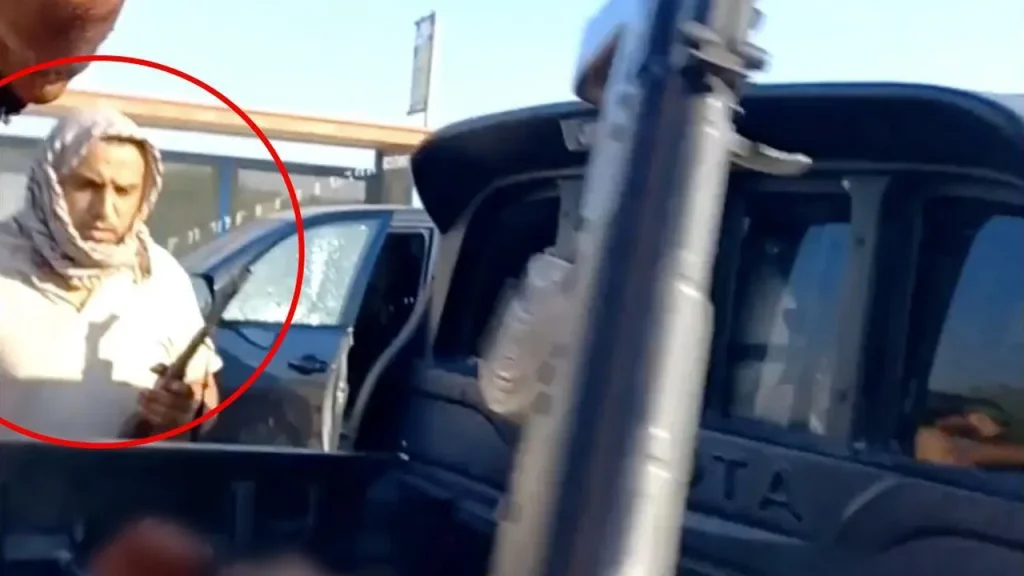The Israeli Defense Forces confirmed that they had “eliminated” Hamas commander Mohammad Abu Itiwi, who was involved in the Oct. 7 attacks, including the assault on the Reim bomb shelter where U.S. citizen Hersh Goldberg-Polin was abducted. Abu Itiwi was a commander in Hamas’ elite Nukhba force and was also claimed to have been working for the United Nations Relief and Works Agency for Palestine Refugees (UNRWA). The IDF conducted a joint operation with the Israeli Security Agency to kill Abu Itiwi, who had been employed by UNRWA since July 2022. Abu Itiwi was alleged to have led the attack on the shelter and directed numerous attacks on IDF troops in Gaza.
Abu Itiwi was photographed at the Reim bomb shelter near the Tribe of Nova music festival, where attendees sought shelter as Hamas terrorists attacked. The shelter became a symbol of the Oct. 7 massacre, where Goldberg-Polin, his friend Aner Shapira, and 25 others sought refuge. Shapira, an IDF soldier, attempted to protect those in the shelter by throwing back grenades thrown by Hamas terrorists. Shapira managed to throw back seven grenades before he was killed. Goldberg-Polin’s arm was blown off during the attack, and he was eventually abducted by Hamas and killed 11 months later in Gaza. Out of the 27 people in the shelter, 16 were killed, four were kidnapped, and seven survived.
Following Abu Itiwi’s elimination, representatives from Israel’s Coordination of Government Activities in the Territories requested an urgent investigation into the involvement of UNRWA employees in the Oct. 7th massacre. The agency reached out to senior officials in the United Nations and the international community to address the issue. UNRWA has previously faced allegations of ties to Hamas, and at least 12 staffers were fired in recent months due to their potential involvement in the attacks. The UN agency has denied many of the claims against it despite mounting evidence against its employees.
The IDF’s joint operation with the Israeli Security Agency to eliminate Abu Itiwi shines a light on the complex dynamics between Hamas, UNRWA, and the ongoing conflicts in the region. The involvement of Abu Itiwi, a Hamas commander who also worked for UNRWA, raises questions about the agency’s connections to terrorist organizations and the need for further investigations into its employees. The Reim bomb shelter attack, where multiple lives were lost and individuals were abducted, underscores the violence and devastation caused by Hamas operations. The IDF’s actions to target individuals responsible for such attacks demonstrate their commitment to maintaining security and protecting civilians from extremist threats.
The story of Abu Itiwi, the Reim bomb shelter attack, and the subsequent investigations into UNRWA’s involvement provide a glimpse into the complexities of the Israeli-Palestinian conflict and the challenges faced by those seeking to maintain peace and stability in the region. The tragic events of Oct. 7 highlighted the dangers faced by civilians caught in the crossfire of armed conflicts and the need for international agencies to uphold their mandates and responsibilities. The IDF’s efforts to eliminate threats and hold accountable those responsible for violence demonstrate the ongoing efforts to address security challenges in the region. The repercussions of the Oct. 7 attacks and the subsequent investigations serve as a reminder of the lasting impact of conflict on individuals and communities affected by violence and terrorism.


